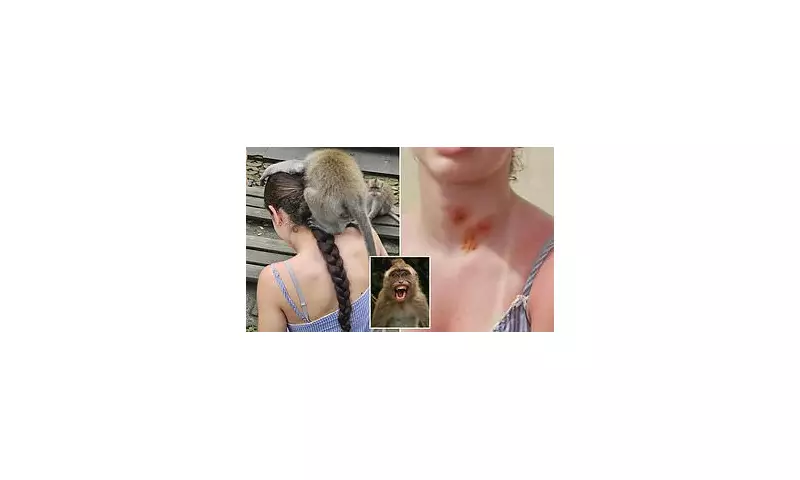
A relaxing holiday in paradise turned into a terrifying medical ordeal for an Australian tourist after a vicious attack by a monkey in Bali's famed Ubud Monkey Forest.
The woman, known only as Jemma, was ambushed by a primate that leapt onto her back, sinking its teeth into her shoulder and drawing blood in an unprovoked assault. The attack has forced her to undergo a gruelling and expensive course of rabies vaccinations, casting a dark shadow over her dream vacation.
A Paradise Trip Turns Sour
Jemma's nightmare began during what should have been a highlight of her trip: a visit to the popular Sacred Monkey Forest Sanctuary in Ubud. Unlike the typical playful interactions visitors expect, her encounter turned aggressive without warning.
"It jumped on my back, it was on my shoulder, and then it bit me," Jemma recounted. The bite broke the skin, an injury that carries a significant risk in a country where rabies remains endemic in animal populations.
The Costly and Painful Aftermath
The immediate medical response was crucial. Jemma was rushed to a local clinic for initial first aid before being transferred to a larger hospital to begin the vital post-exposure prophylaxis (PEP) for rabies.
The treatment protocol is notoriously arduous. Jemma requires four separate rabies vaccinations over a month, a process that is both physically painful and financially draining. The first injection, a Immunoglobulin shot, is particularly agonising and must be administered directly into the wound site.
Furthermore, the incident has resulted in unexpected expenses. Travel insurance is now a critical concern, as the cost of the medical treatment and any potential trip disruptions mounts.
A Warning to Other Travellers
This alarming incident serves as a stark warning to the thousands of tourists who visit the monkey forest each year. While many interactions are harmless, the animals are still wild and unpredictable.
Local authorities often advise visitors to secure all loose items, avoid direct eye contact with the monkeys, and refrain from carrying food in open bags. This attack underscores the importance of heeding such advice and maintaining a safe distance at all times.
For Jemma, her holiday has been irrevocably altered, replaced by the anxiety of medical treatments and the fear of a deadly disease. Her story is a sobering reminder that even in idyllic settings, caution must prevail.





